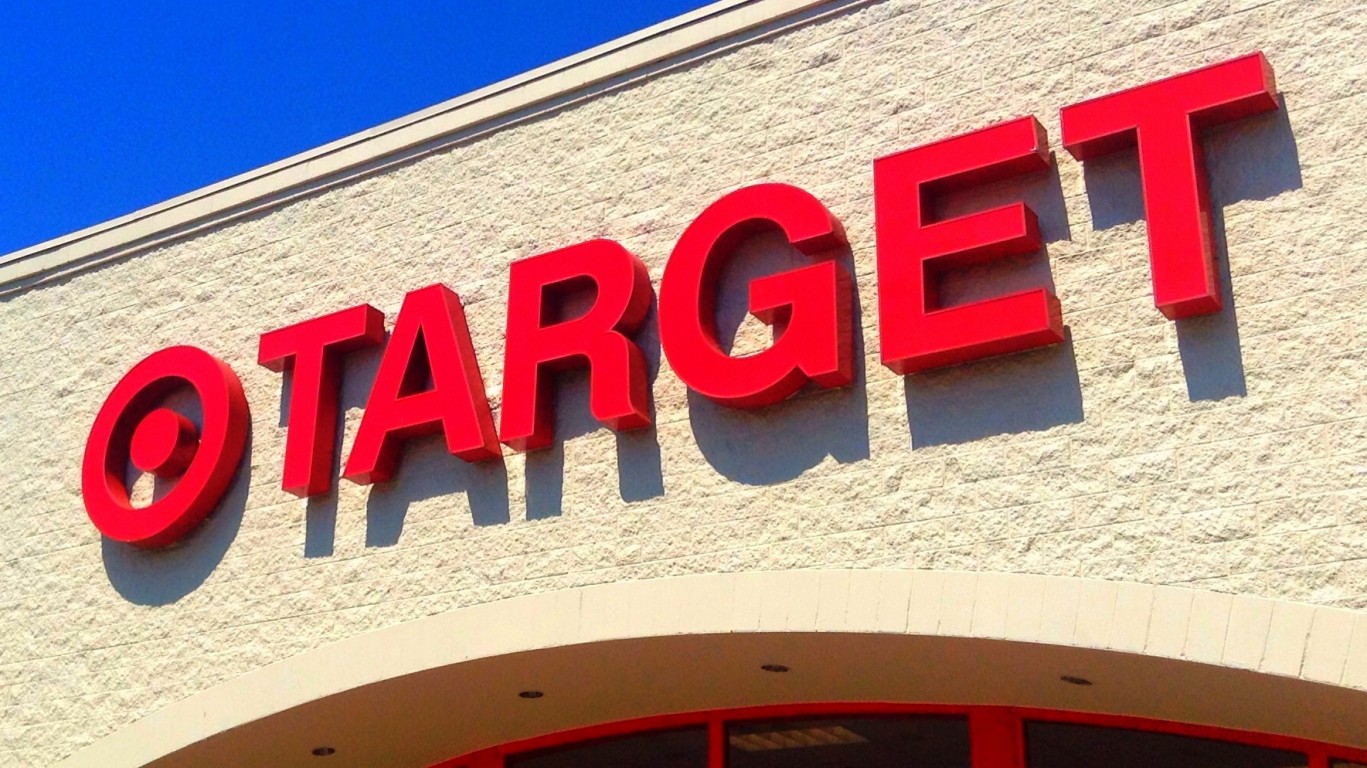
The death of the American consumer has been talked about for the past year. Just when it seems time for the post-mortem, numbers drop like they did this week and make the so-called experts shake their heads in disbelief. With credit card debt growing and the economy slowing, it makes sense that a slowdown would be in order. Yet, it may not actually come until next year, if at all.
Tuesday’s report on September retail sales came in at a stunning 0.7%, doubling the 0.3% forecast. It was also up from the 0.6% for August. Core retail sales roared in at 0.6%, tripling the expected 0.2%. Core sales exclude auto sales and correspond most closely with the consumer spending component of gross domestic product.
Treasury yields jumped Tuesday after the number was reported. The 10-year note has hit levels not seen since 2007. What may prove difficult for those looking to buy a home or a new car in the near term may be making the Federal Reserve’s job easier. The bond market continues to take care of raising rates itself. Many feel that the Fed may hold rates steady when it meets in two weeks.
Six Top Companies With Huge Holiday Prospects
While retail has had a huge issue with theft over the past couple of years, the biggest and the best players in the industry look poised to dominate holiday sales once again. We screened our 24/7 Wall St. retail research database looking for Buy-rated stocks trading at reasonable multiples that also pay dependable dividends.
Six top companies hit our screens and look like the best bets for investors looking to buy old-school retail in front of the busy holiday shopping season. While all are rated Buy, it is important to remember that no single analyst report should be used as a sole basis for any buying or selling decision.
Costco Wholesale
This has become the ultimate destination for the American consumer regardless of the economy. Costco Wholesale Corp. (NASDAQ: COST) has a unique business model. It operates membership warehouses, and it buys the majority of its merchandise directly from manufacturers, essentially cutting out the middleman. Costco sells in bulk but also at a lower price, thus fueling its rapid growth. With consumers having more free cash to spend as gasoline prices have dropped, this major retailer may continue to see large revenue gains.
Costco remains one of the few conventional retailers where metrics like store traffic, market share gains and a validated model could bode well for international growth and expansion. The company is largely unharmed by e-commerce, and it continues to add stores in strategically mapped out locations.
Wall Street loves the company’s pricing authority on key items, the leading merchandising offering and the company’s Costco co-branded card with Visa, a real positive. Add in the company’s growing online presence, and the future looks bright.
Shareholders receive a 0.90% dividend. J.P. Morgan has a $620 price target on Costco Wholesale stock. The consensus target is $595.25, and shares closed trading on Thursday at $565.63.
Dollar General
With inflation driving prices higher, this deep-discount retailer may see huge sales this year. Dollar General Corp. (NYSE: DG) provides various merchandise products in the southern, southwestern, Midwestern and eastern United States.
The company offers consumable products, including paper and cleaning products, such as paper towels, bath tissues, paper dinnerware, trash and storage bags, and laundry products; packaged food comprising cereals, canned soups and vegetables, condiments, spices, sugar and flour; and perishables that include milk, eggs, bread, refrigerated and frozen food, beer and wine.
Its consumable products also comprise snacks, such as candies, cookies, crackers, salty snacks and carbonated beverages; health and beauty products, including over-the-counter medicines and personal care products, such as soaps, body washes, shampoos, cosmetics and dental hygiene and foot care products; pet supplies and pet food; and tobacco products.
In addition, Dollar General offers seasonal products, including holiday items, toys, batteries, small electronics, greeting cards, stationery, prepaid phones and accessories, gardening supplies, hardware, and automotive and home office supplies. Its home products include kitchen supplies, cookware, small appliances, light bulbs, storage containers, frames, candles, craft supplies and kitchen, and bed and bath soft goods.
The company also provides casual everyday apparel for infants, toddlers, girls, boys, women, and men. This includes socks, underwear, shoes and accessories.
Investors receive a 2.01% dividend. The Jefferies target price is $135, and Dollar General has a consensus target of $135.65. Thursday’s closing share price was $115.51.
Kohl’s
This top retail stock offers an excellent entry point now, and a big dividend. Kohl’s Corp. (NYSE: KSS) operates department stores in the United States. The company offers private label, exclusive and national brand apparel, footwear, accessories, beauty and home products to children, men and women customers. The company also sells its products online and through mobile devices.
With the economy struggling, consumers increasingly are turning to discount retailers for clothes, food and many additional items, and Kohls has a legendary following of value-seeking customers that shop at the retailer through good and bad times. When the use of privately branded credit cards rises, so does the bottom line at the company.
Some top analysts feel that the bankruptcy at Bed Bath & Beyond will be a positive for the company as bargain-hunting shoppers look to retailers like Kohl’s. Note though that there is the potential for the company to lower its dividend.
Kohl’s stock comes with an 11.24% dividend. TD Cowen has set its price target at $23. The consensus is higher at $24.33, but the stock closed on Thursday at $20.79.
Macy’s
This venerable retailer has held its own this year and has big upside potential, especially as we approach the holiday season. Macy’s Inc. (NYSE: M) is an omnichannel retail organization that operates stores, websites and mobile applications in the United States.
The company sells a range of merchandise, such as apparel and accessories for men, women and kids; cosmetics; home furnishings; and other consumer goods under the Macy’s, Bloomingdale’s, and bluemercury brands. It also operates in Dubai, the United Arab Emirates, and Al Zahra, Kuwait, under license agreements.
The dividend yield here is 4.15%. Goldman Sachs’s $17 target price is higher than the consensus target of $14.73. On Thursday, Macy’s stock closed at $11.38.
Target
This big-box giant retailer had a difficult time last year but things appear to be improving. Target Corp. (NYSE: TGT) operates as a general merchandise retailer in the United States. It sells its products through its stores and digital channels.
The company offers apparel for women, men, boys, girls, toddlers, infants and newborns. Its offerings include jewelry, accessories and shoes, as well as beauty and personal care, baby gear, cleaning and paper products, and pet supplies.
Target also provides dry grocery, dairy, frozen food, beverages, candy, snacks, deli, bakery, meat, and food service. Its electronics offerings include video game hardware and software, as well as toys and entertainment. Other categories are sporting goods, luggage, furniture, lighting, storage, kitchenware, small appliances, home décor, bed and bath, home improvement. It also offers school/office supplies, greeting cards and party supplies and other seasonal merchandise.
Investors receive a 3.99% dividend. Target stock has a $135 target price at BofA Securities. The consensus target is up at $149.83, and shares closed at $108.36 on Thursday.
Walmart
The giant retailer posted strong second-quarter results and remains a top idea in an inflationary environment when consumers look for value. Walmart Inc. (NYSE: WMT) engages in the operation of retail, wholesale and other units worldwide.
It operates supercenters, supermarkets, hypermarkets, warehouse clubs, cash and carry stores, and discount stores under Walmart and Walmart Neighborhood Market banners. It operates membership-only warehouse clubs, e-commerce websites and mobile applications.
The company’s offerings include groceries and consumables. These include dry grocery, snacks, dairy, meat, produce, bakery and deli, alcoholic and nonalcoholic beverages, floral, candy, and other grocery items. It also includes dry, chilled or frozen packaged foods. Other consumable items include health and beauty aids, paper goods, laundry and home care, baby care and pet supplies.
Walmart is also involved in the operation of gasoline stations and provision of tobacco. Its health and wellness offerings include pharmacy, optical and hearing services, and over-the-counter drugs and other medical products.
Other categories include home improvement, outdoor living, gardening, tools and power equipment, and furniture. It offers apparel, jewelry, housewares, toys, seasonal items, and even mattresses. Walmart operates and tire and battery centers. Furthermore, it has consumer electronics and accessories, software, video games, office supplies, appliances and third-party gift cards.
Walmart also operates digital payment platforms and offers financial services and related products. These include money transfers, bill payments, money orders, check cashing, prepaid access, co-branded credit cards, installment lending and earned wage access.
Shareholders receive a 1.67% dividend. The Piper Sandler price target is $210. The consensus target is $179.11. Walmart stock ended Thursday trading at $160.78.
The September retail report must have been comforting to the top executives at these companies. It also bodes well for the economy if the strong numbers remain in place. With the increases in the federal funds rate close to the end, and shoppers still buying at a strong pace, the holidays look to be bright this year.
Originally published at 24/7 Wall St.
Sponsored: Find a Qualified Financial Advisor
Finding a qualified financial advisor doesn’t have to be hard. SmartAsset’s free tool matches you with up to 3 fiduciary financial advisors in your area in 5 minutes. Each advisor has been vetted by SmartAsset and is held to a fiduciary standard to act in your best interests. If you’re ready to be matched with local advisors that can help you achieve your financial goals, get started now.






